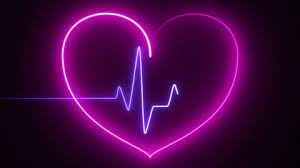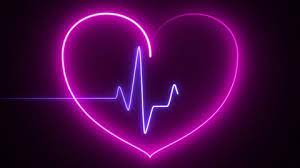
I struggled with low blood pressure my whole life. It wouldn’t have been so bad, but I also struggled with tachycardia (too rapid heart rate) my whole life as well. The two issues combined were a recipe for hypovolemic shock. When I went into hypovolemic shock, we called it bottoming out. It was one of the reasons I was admitted to the hospital so frequently.
“Any time you know you’re bottoming out, that’s an automatic 911 call”. Dr Oster had told me.
I could always tell when I had low blood pressure and a high heart rate and was going into shock. My skin would turn bluish-gray and I would alternate between having chills and hot flashes. The world would start trying to pin me down. Exhaustion would overwhelm me along with a pull towards the darkness of the unconscious.
No matter where I was when the low blood pressure hit, I would have to call for an ambulance. If I was at home it wasn’t the biggest deal in the world, but if I was in an embarrassing place it was awful. Pretty much anywhere in public fell under the category of an embarrassing place. The more people around, the more embarrassing it was. Sometimes I would need to call an ambulance from art class. Other times I would be at the mall or the park with friends.

Hearing the doctor confirm that it wasn’t all in my head brought me so much relief. But the relief didn’t last. After getting admitted to the pediatric medical/surgical floor I went through a battery of testing. Nothing else showed up as a problem and because my parents and home care team continued to insist that I was just a psych case, the hospital finally decided that maybe there really was nothing physically wrong with me.
The final decision was that I was anorexic and would need to be transferred to the psych unit for children in a different hospital, where I would be on a unit for 5 to 11-year-olds but have meals and some groups with the eating disorder unit.
At that point I had a special feeding tube in my nose called an NG tube. It went from my nose down my throat, past my esophagus, and ended in my stomach. The part of the tube that came out of my nose was hooked up to tubing that was connected to a bag of a liquid called tube feed that contained all the nutrition I would need in a day. It ran on a pump that set the rate of how fast the tube feed ran in. Until I could start eating enough calories a day to maintain my weight, I would need to have that NG tube.

My mom has been my safety net for my whole life. She just sometimes doesn’t hold my safety net in the right places. When I first got sick she didn’t know where to hold my safety net because the professionals were all insisting that there was nothing physically wrong with me. They insisted that I had an eating disorder.
Because she was holding my safety net in the wrong spot, I fell. Hard. And whacked my head on the floor of an elevator when I passed out after a routine blood test. My dad had to rush me to the ER. At the ER a doctor with a monkey fingerling named Mr. Bananas clinging to his stethoscope examined me.

My dad’s arms were wrapped firmly around me as he held me while talking to the lady at the desk at the entrance to the pediatric emergency room. About twenty minutes earlier I had passed out in an elevator on the way out of Dr. Monroe’s office. The vampire lady in her lab had just sucked out her usual four tubes of blood from the crook of my arm. When she was done she gave me a unicorn sticker, and I stepped into the elevator. The next thing I remembered being aware of was my dad leaning over me yelling my name in a panic. He had picked me up in his arms like a baby, not the ten-year-old girl I was, and carried me out to the car. I didn’t fully wake up until we were racing down the turnpike toward the hospital.

It was March of fifth grade and I was living off sips of Gatorade. The last time I’d had any actual food was in January. My body was skeletal and looked like I’d break if I slipped and fell. I kept asking myself, “What is wrong with me?” I wasn’t on some sort of starvation diet because I was scared that the food would make me get fat. However, that’s what everyone insisted the problem was.
Dr. Monroe, my pediatrician had started that theory after finding out I was on a high-pressure gymnastics team. To her credit, Dr. Monore had done an abdominal x-ray and some initial blood work. But when her tests came back normal, I asked her “What is wrong with me?”

Jonathan (my 5-year-old brother) was struggling in kindergarten.
“I think he might be on the autism spectrum,” I heard his teacher say to my mom when we went to his classroom to pick him up. The school kicked me out after I got dizzy in class too many times. When they sent me to the nurse’s office for it, my blood pressure would be so low that they would have to call my mom to bring me home and make an emergency doctor’s appointment with Dr. Monroe
.
They decided that I couldn’t go back to school until I was eating three meals a day and had a doctor’s note clearing me to return.
That day the teacher pulled my mom aside, my mom sounded angry.
“He is not, autistic” my mom glared at Jonathan’s teacher.
“He needs testing done if he ever wants to graduate kindergarten. At the very least he has severe learning disabilities.” The teacher told my mom, as Jonathan stared intently at a skid mark on the linoleum floor.
It was another whole year before Jonathan got the testing done. He had to repeat kindergarten. But again, Jonathan wasn’t in immediate danger of dying, so my issues were the ones put front and center, and all my parent’s energy was thrown into playing food police on me.

Everything started at age eight when I stopped being able to eat lunch at school. If you ask a thousand different people with gastroparesis, “What do you do when your stomach fails you?” They will give you a thousand different answers. When I was in third grade my answer was to refuse to eat lunch and snacks anymore.
Of course, this made my parents very anxious, and started them asking me a bazillion questions. I almost wanted to ask them, “What would you do when your stomach fails you?” but I knew I couldn’t talk to my parents like that.
It wasn’t until the end of third grade and the summer of my nine-year-old check-up that my parents really went on high alert. But as soon as I saw Dr. Monroe, my pediatrician, she noticed I had fallen off the growth charts for weight and then was reminded that even though I had barely turned nine I was on the highly competitive level six gymnastics team. Instead of thinking, “What do you do when your stomach fails you?” She decided to plaster me with the eating disorder label and dismiss all possible physical possibilities for my stomach failing me.

I can trace my descent into chronic illness all the way back to age eight. Up until then, I was actually a healthy kid. Until then there was no mention of hospitals, tube feeding, IV nutrition, terminal illness, or unrelenting pain. None of that. Back then there was no talk about me having an eating disorder.
The first sign of any issues occurred in third grade when I began suffering from frequent pounding headaches.
Another early sign of something amiss was how dry my body was. If I went a couple of hours without sipping on a drink I could put a finger in my mouth and move it around, and my entire mouth would be bone dry.
My skin began to get very dry as well, and I noticed something odd, I no longer could sweat, no matter how hot the temperature was.
Even my eyes were super dry to the point where it made my vision blurry.
In Chapter 23 Cassie auditions for the High School of the Arts, her monologue is right on and the interviewer...









